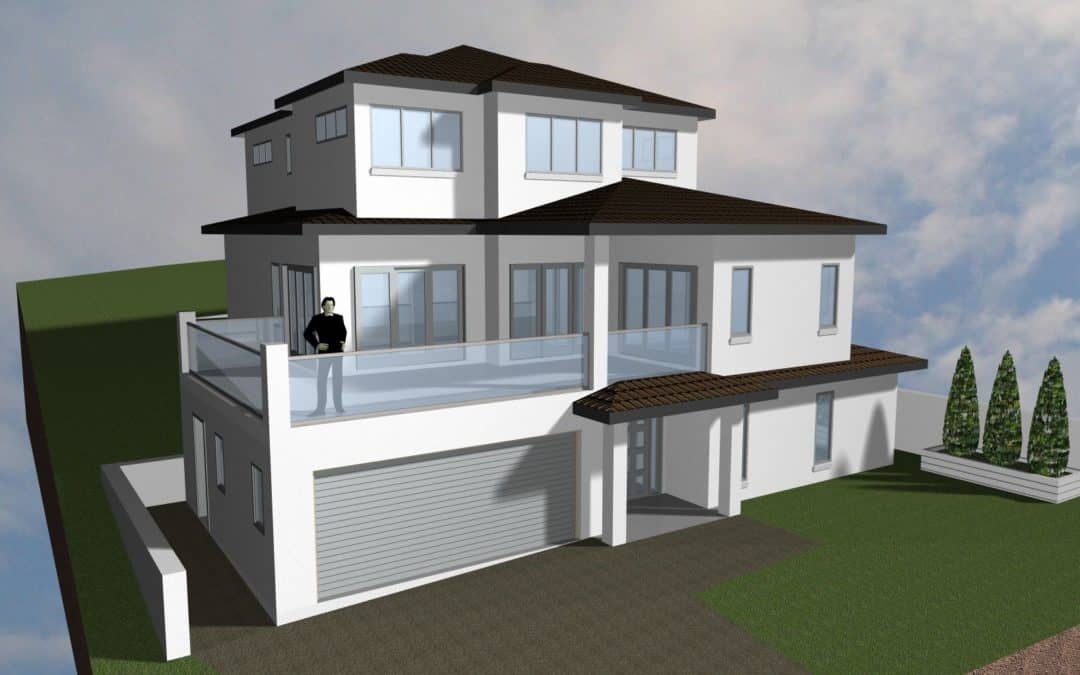
by William Li | Jun 20, 2014 | Design & Build
I never considered myself as an architect or architectural designer, but one night at a BCIT course, my instructor Mr. Klassen mentioned that he has never been certified or licensed by any associations or organizations, but has been designing detached houses all the time because he is qualified. I was inspired by his idea; just like what I have been doing over the years- working hard for the skills, not the titles or designations. I started to be involved in a house architectural design in 2007, I enjoyed it, and I will do more.
My first designing experience began in 2007 when I joined Jalcon Homes– a custom design & build firm in Auckland as a Design & Build Consultant. My role was really a communication bridge between the client and the architect. Besides the cultural and language barrier in architecture, I also found that the clients easily changed their ideas, therefore, I decided to learn to draft house concepts and plans myself for clients. I think it worked well.
My First Project
My first project located on a sloped site at Albany North Shore. The clients were a young couple who owned their own business, needless to say, the house style reflected their characters-modern and fashion. The house was designed by Cameron B. and I drafted it with ArchiCAD.
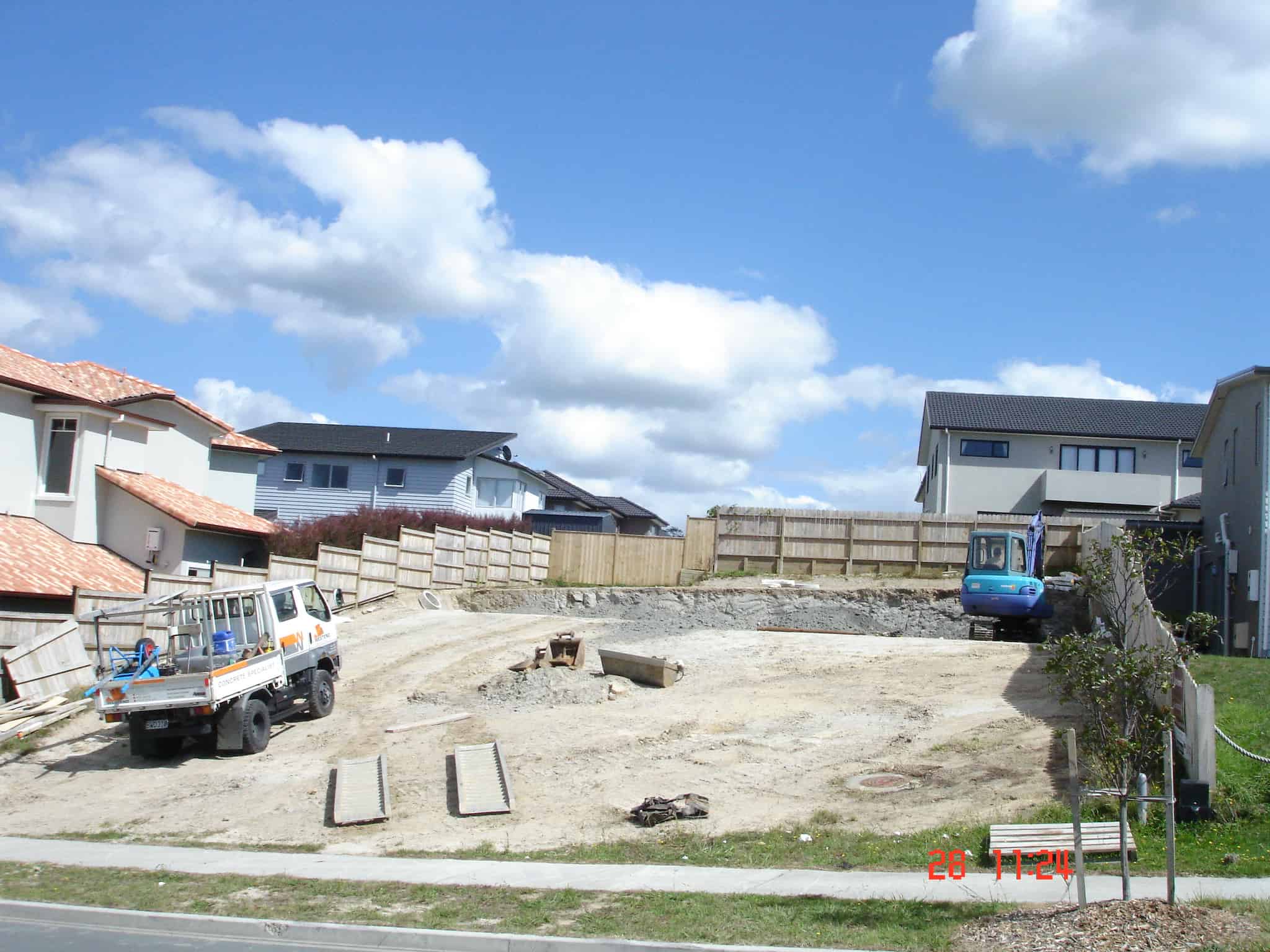
2008-02-28 site excavation
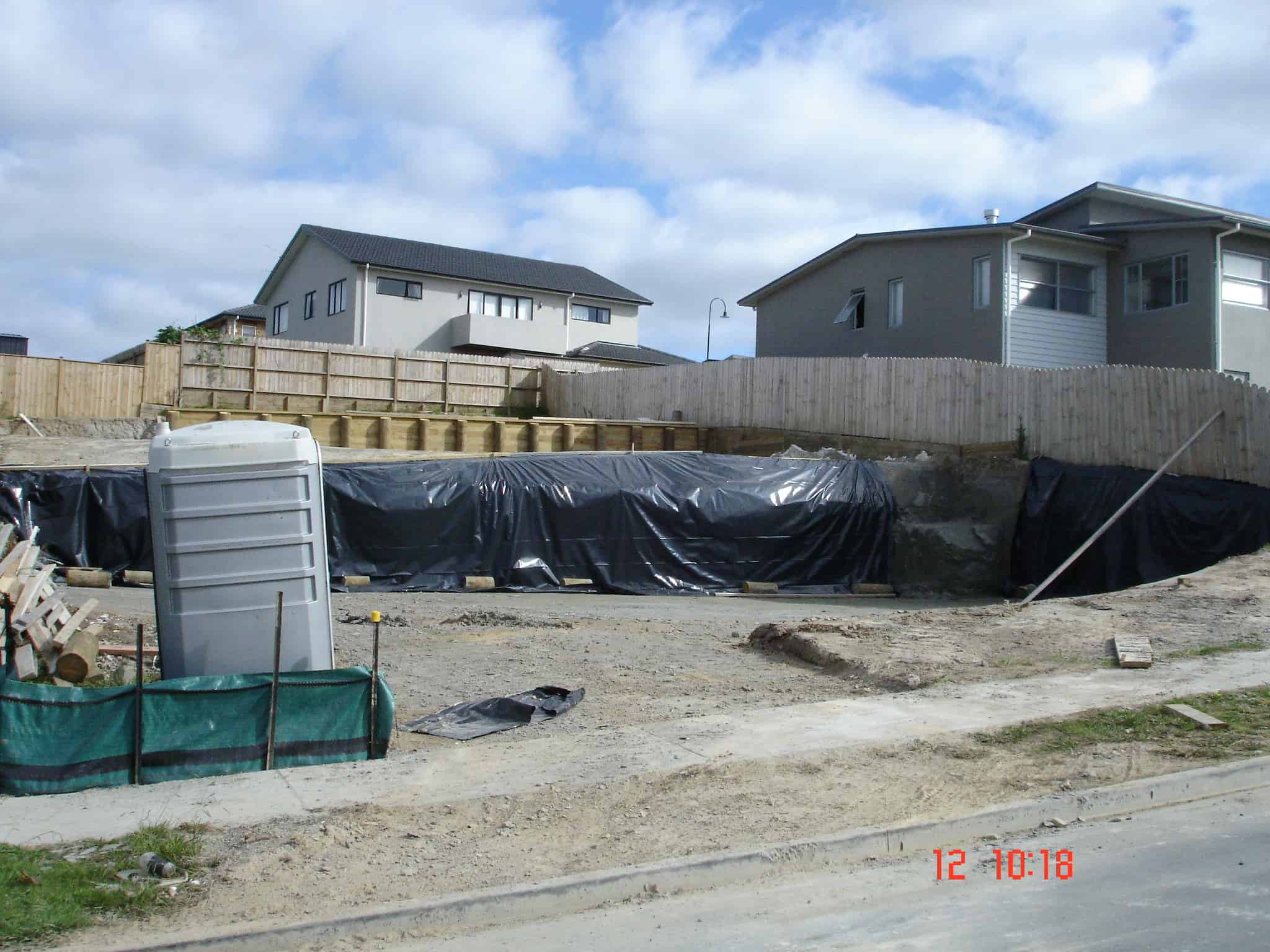
2008-03-12 site excavation & retaining wall done
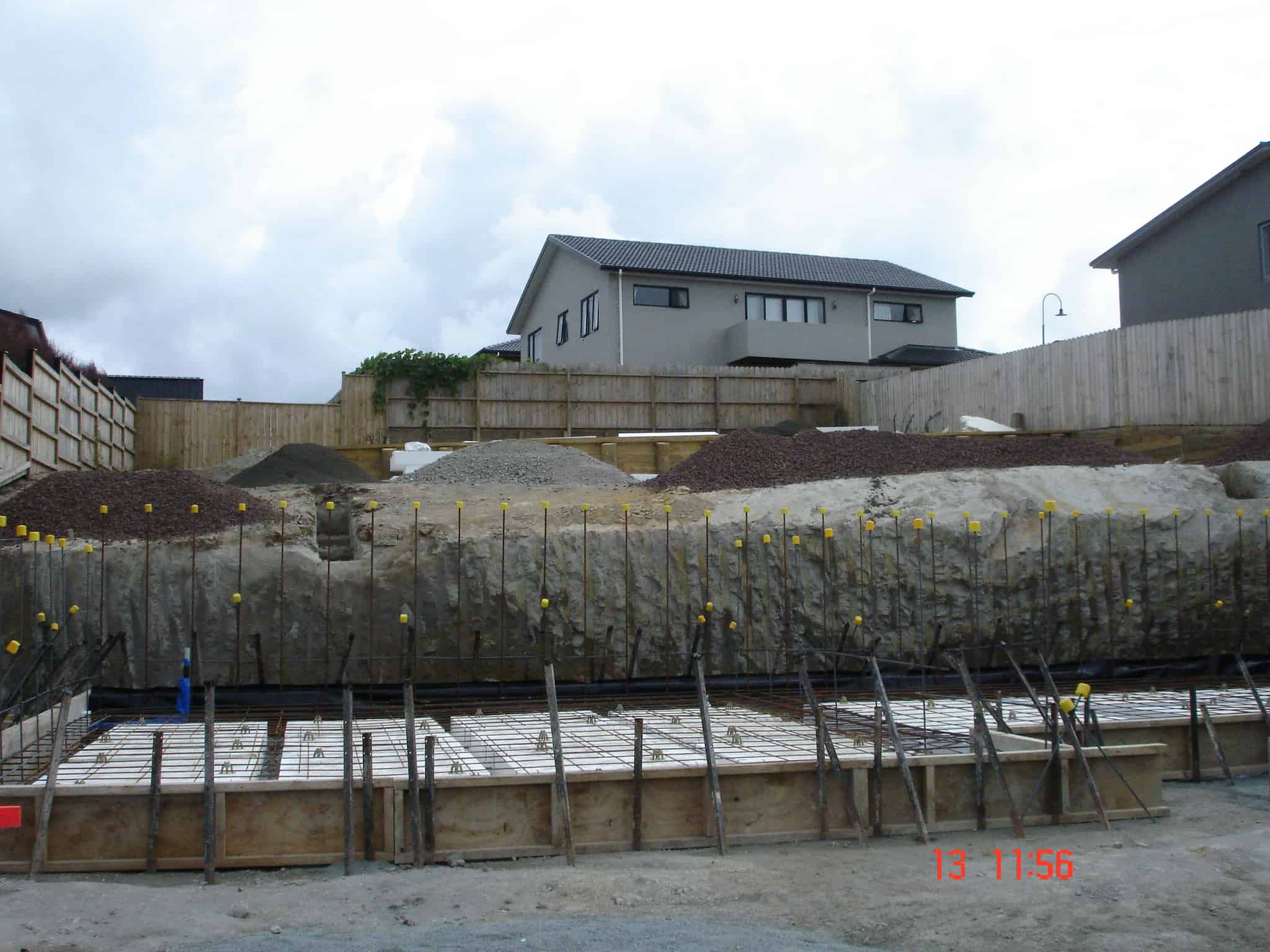
2008-04-13 ready for concrete slab and wall
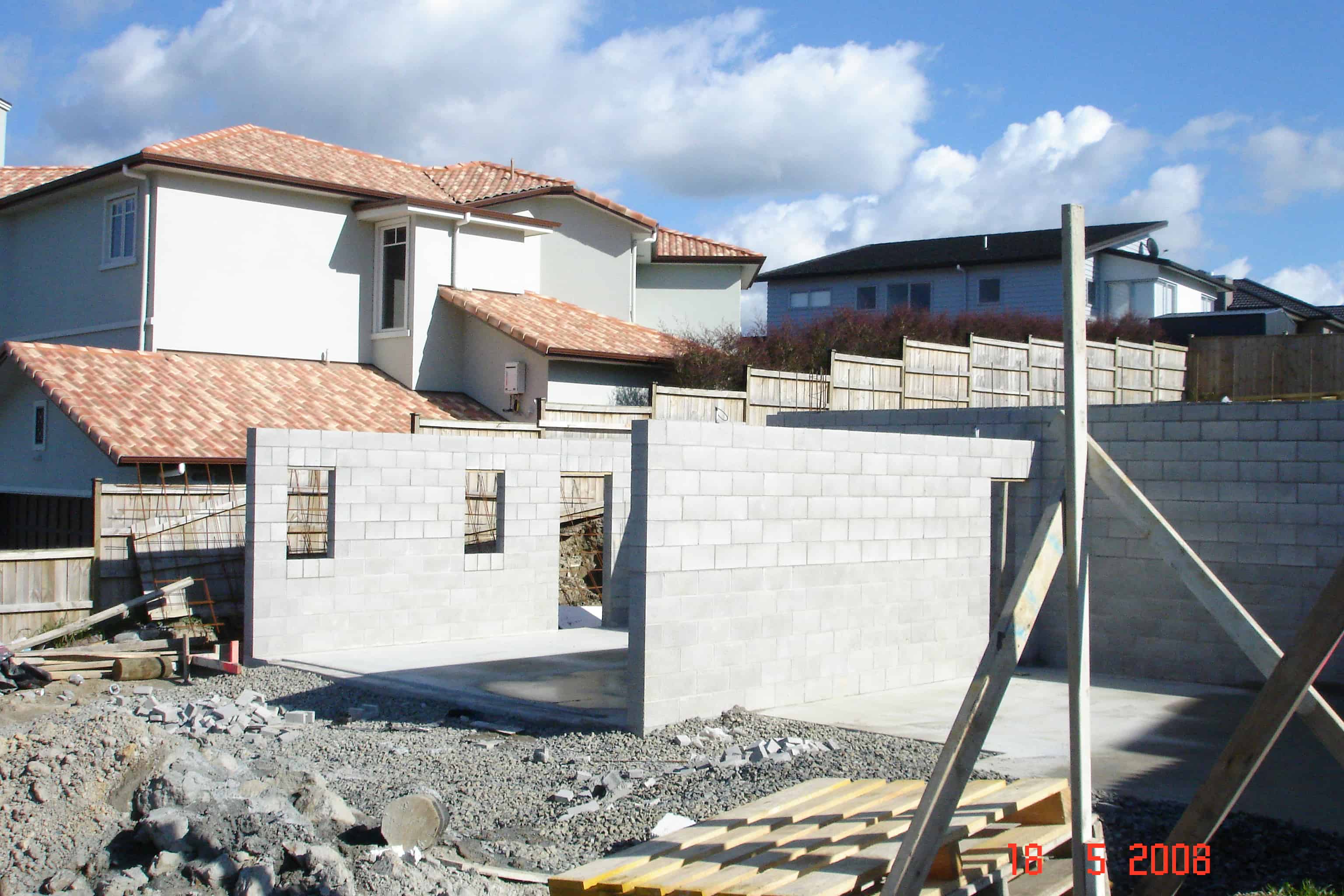
2008-05-18 basement foundation done
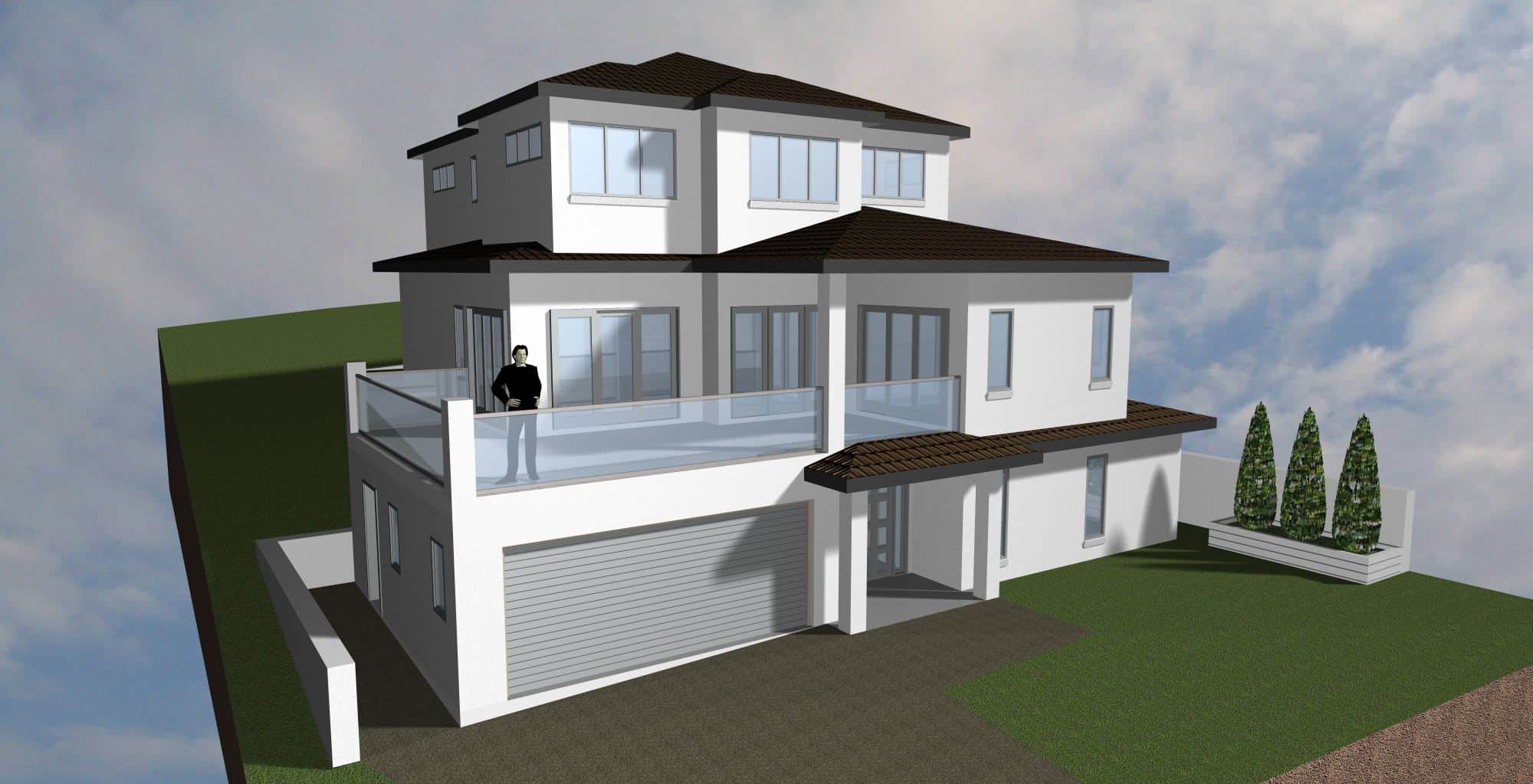
house 3D rendering by William Li with ArchiCad
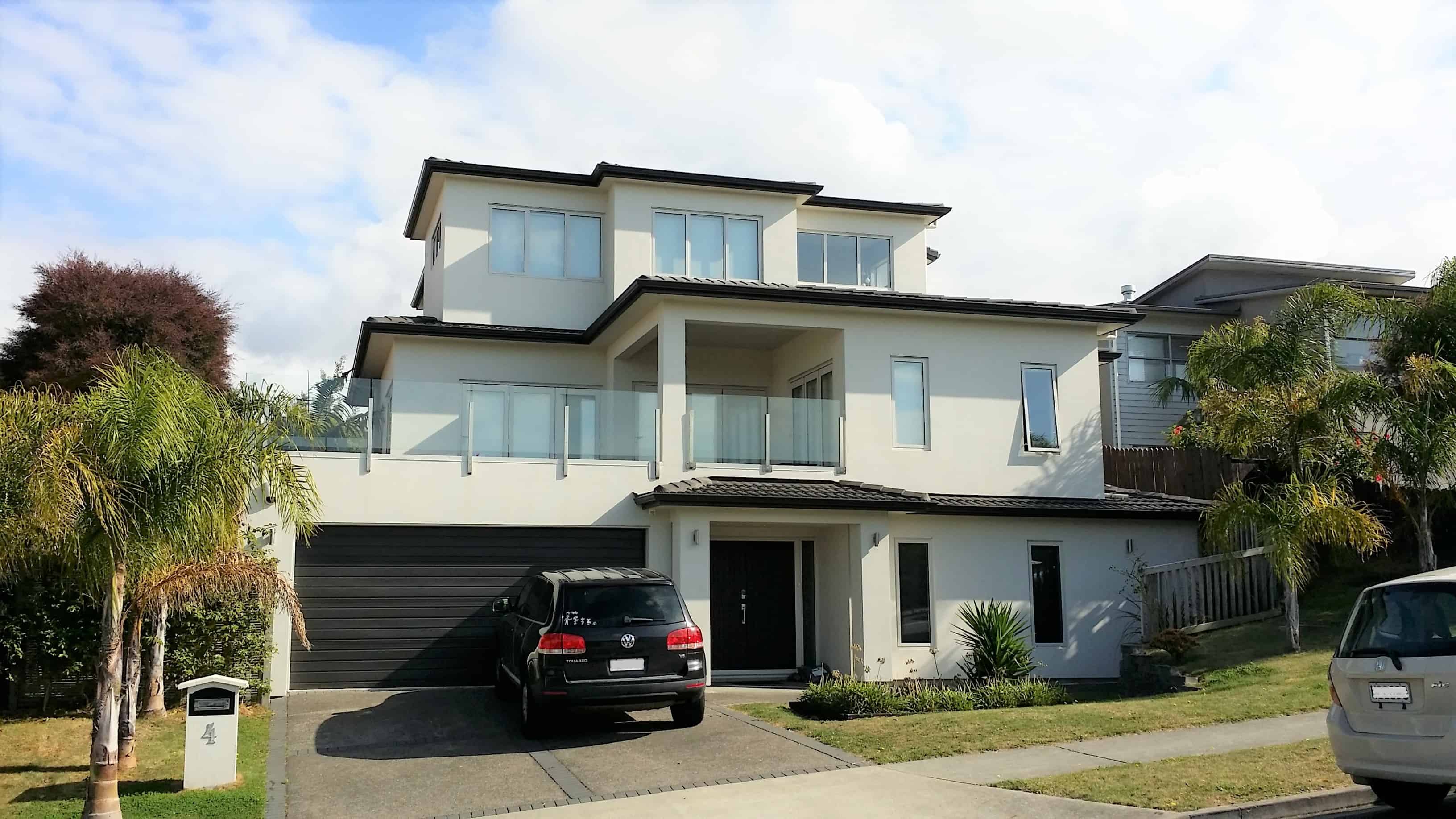
2014-04-03 photo taken when I returned to New Zealand 5 years after I left

by William Li | Aug 16, 2013 | Design & Build, Real Estate
From the website SEO point of view, I should update my blog regularly, but it has been more than 2 months since my last input. Yes, it’s very busy for the home inspection business, and I read a news today at Vancouver Sun and said ‘Hot Vancouver real estate market boosts national housing number…’ wow, no wonder! I don’t think that is a good news for potential buyers, but what can we do as we live in VANCOUVER!
Apart from the home inspection, I have a managed a renovation project which included both exterior and interior painting, re-flooring, some re-roofing, windows replacement, kitchen cabinet renewal, furnace replacement, the electrical panel replacement and so many other things. I do gain some valuable experience from managing the project, especially for the high efficiency furnace and electrical panel replacement by licensed trades people. I spent two days with them by offering being a free helper, you know, it is really a good experience for a home inspector.
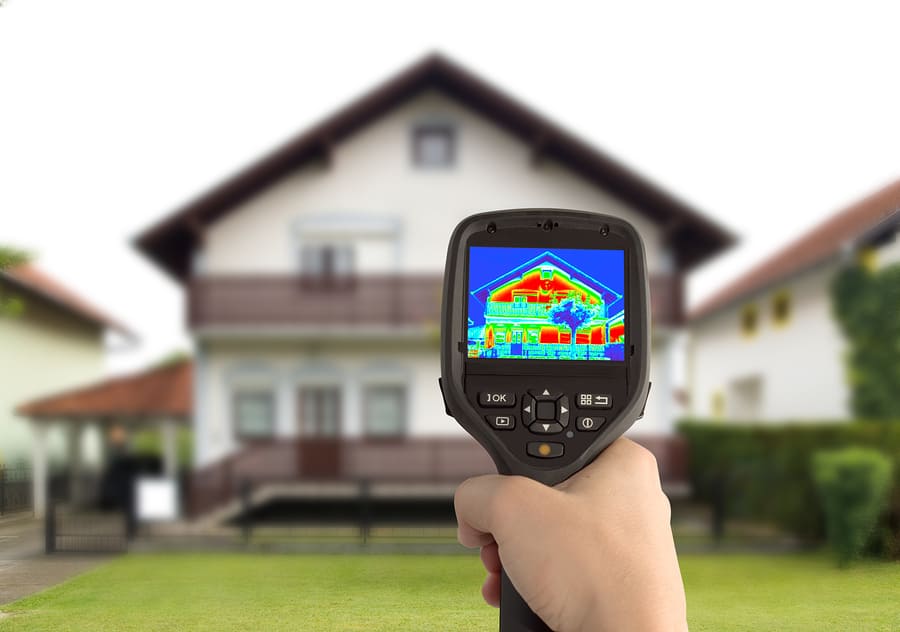
by William Li | Jun 11, 2013 | Home Inspection
I inspected a house last month and found signs of water ingress in the crawlspace. It was dry at the time of inspection, and it might relate to the exterior cladding to grade clearance issue. I honestly reported it to my client that I could not determine when the water ingress happened and I could not guarantee that it won’t happen in the future either, a second opinion from qualified contractor may be needed. My client finally walked away after a couple of days of consideration. The seller’s agent was so angry and he yelled at me over the phone, in a threatening tone, that I won’t get business from him and the thousands of his colleagues.
It reminds me of the importance of the home inspection for the seller although it is typically paid for by the buyer and conducted for the benefit of the buyer. For this case, if a home inspection has been performed before the listing, the crawlspace water ingress issue will be a big red flag. Then, the seller can do something about it, such as insulating the crawlspace with XPS rigid board, and this will be considered an improvement. Sorry for the buyers…
Can I do a home inspection for both the seller and the buyer for the same property? No, this would be a conflict of interest.
Ironically, two weeks after, I received a call from another potential buyer and who asked me if I can inspect the house for him again, and he mentioned he obtained my phone number from the seller’s agent and he called me because the agent was so angry about me. OK, Can I inspect a house twice? I don’t think I want to…
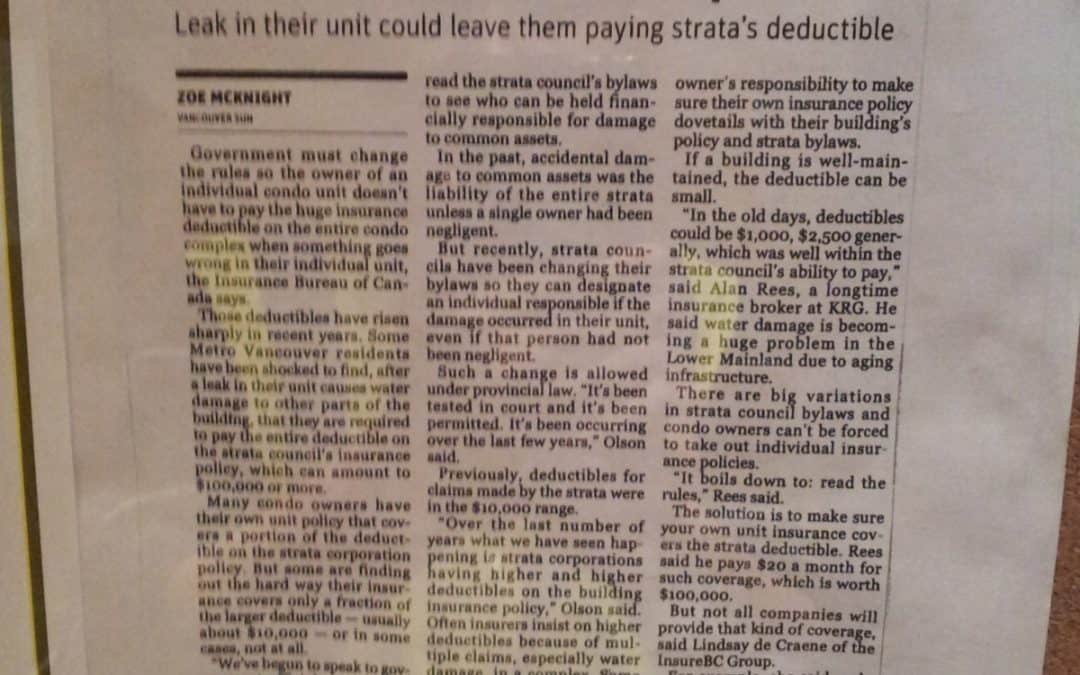
by William Li | May 24, 2013 | Home Inspection
Recently I inspected a Condo in Richmond, which is about 5 years old. From the inspector’s point of view, condo inspection is a partial inspection and is performed on only those components that the buyer or the homeowner is responsible for. For every condo I inspected, I kept reminding the buyers the importance of reviewing the past strata meeting minutes, especially, with regard to the building envelope and structural issues, because they are just too crucial to be ignored. For more information about strata buyers, read here.
Also, Do Not assume your monthly strata fees will cover your for everything. The might turn out to be a big surprise for you. This is what I saw in the elevator in the condo I inspected; if it is not clear, this is the original source. I admit I purchased many kinds of insurance but I never read those fine prints very carefully. Yes, as a condo owner, you have more “closer” relationship with your neighbors, strata managers etc. Good luck!
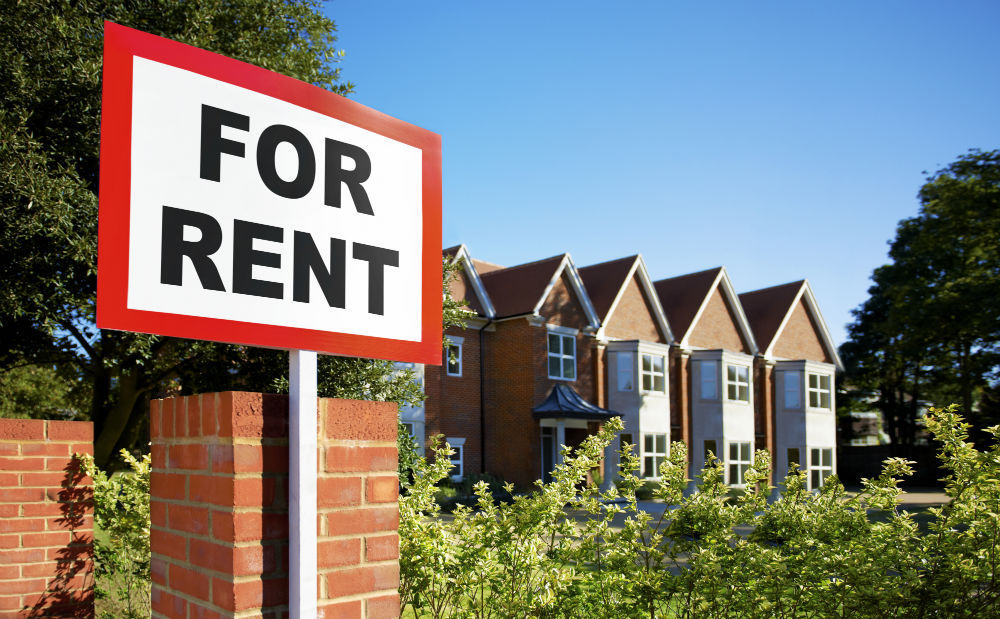
by William Li | May 15, 2013 | Real Estate
Further to my last post, especially the feasibility of achieving the positive cash flow in investing in rental properties, here are some communications regrading this topic between me and Jonathan Huang from CIBC Bank, and I would like to share it here with his consent.
“…Based on current real estate market situation in Vancouver, if someone wanted to buy a $1 million dollar home and rent it out, the owner would have to put a specific amount of a down payment towards the purchase in order to generate a positive cashflow from the rental income.
Scott McGillvray talked about investing in rental properties that are easily rented out. From the examples he used in the seminar, it seems that a target potential for tenants would be students. The appreciation of the property value would not be the main objective for such an investment, but a positive cash flow is. As long as the property’s rental income can cover all the costs including mortgage payment (principal and interest), property tax, strata fees, etc., then it could be considered for a potential purchase.
With the growing population of the students (both international and domestic), the Lower Mainland condo or apartment real estate market offers a tremendous opportunity for investors. For example, in the New Westminster SkyTrain Station area, a two bedroom apartment is available in the price range of $260K to $300K. Such a property can potentially generate a rental income of $1,400 to $1,600 monthly.
Let’s use an example of a $280,000 apartment with a $1,500/month rental income:
20% down payment: 280000 @ 20% = $56,000
Mortgage amount: 280000 @ 80% = $224,000
A current three-year fixed rate mortgage is 2.45% (CIBC special rate, subject to change)
The monthly mortgage payment: $877.82 (principal $422.80 and interest $455.02 based on 30 year amortization)
The property taxes: ~$1,500/12 = $125.00
Strata Fee: ~$230 = $230.00
The total monthly cost would be ($877.82 + $125.00 + $230.00) = $1232.82
The net cash flow of this investment: $1,500 – $1,232.82 = + $267.18
If $5073.60 ($422.80 x 12) in principal is paid towards the mortgage, which increases the equity of the property by the same amount each year assuming the property valued remains constant, then the annual positive cash flow would effectively yield a 5.72% ($267.18×12/$56,000) return on the $56,000 down payment. This is a much better than a 5 year GIC rate of a mere 2.00%.
The above analysis is for illustrative purposes only. The ultimate decision on whether or not a person should invest in a rental property should be based on the client’s entire financial picture, including the investment objective, and any long term investments should be considered in conjunction with tax planning, retirement planning, estate planning, etc.
… …”
“Thanks for your input, Jonathan.
From the example you gave, it is a $300,000 condo. If one wanted to invest in a million dollar house, then he will have to rely on the capital gain in the long run, and he won’t get positive cash flow.
… …”
“It is not going to achieve a positive cash flow with a million dollar property which has a 80% mortgage. The time for a quick capital gain is gone unless there would be a chaos in the rest of the world and all the riches wanted come to Canada.
People can still buy very old houses and rebuild a new one, but that is a totally different ball game.
… …”













